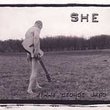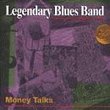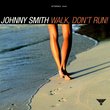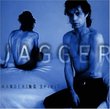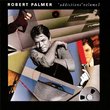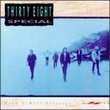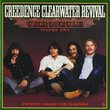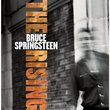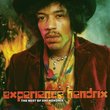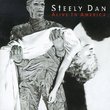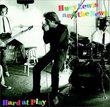| All Artists: Tin Machine Title: Tin Machine II Members Wishing: 4 Total Copies: 0 Label: Polygram Records Release Date: 9/3/1991 Genres: Pop, Rock, Classic Rock, Metal Styles: Album-Oriented Rock (AOR), Hard Rock Number of Discs: 1 SwapaCD Credits: 1 UPC: 731451121623 |
Search - Tin Machine :: Tin Machine II
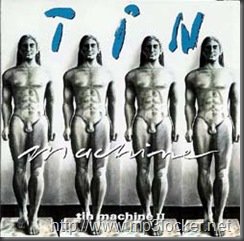 | Tin Machine Tin Machine II Genres: Pop, Rock, Classic Rock, Metal
|
Larger Image |
CD DetailsSimilar CDs
Similarly Requested CDs
|
Member CD ReviewsReviewed on 5/9/2007... David Bowie's band in the 1990s 0 of 1 member(s) found this review helpful.
CD ReviewsWorth reconsidering Gareth Davies-Morris | San Diego, CA USA | 12/07/2003 (3 out of 5 stars) "Now that Bowie's rehabilitated himself via a second string of great albums (starting with The Buddha of Suburbia), perhaps his 80s-early 90s output should be reconsidered. This album is a worthy place to start, as it's unfairly overlooked or dismissed as Bowie slumming with his rock n' roll buddies. A word about the band: Reeves Gabrels emerged as one of the longest lived Bowie sidemen (6 albums, I believe) and the latest of his many fine guitarists (Ronson, Fripp, Earl Slick, Carlos Alomar, Adrian Belew, Stevie Ray Vaughan, et al), while the Sales Brothers have a low-profile but worthy pedigree, having worked with Todd Rundgren, Bob Welch and, most notably, Iggy Pop (propelling Lust For Life). Let's take it track by track:
Baby Universal: Not delivering quite the expected punch but still starting things with a bang, this Ziggy flashback has a strong verse though not much of a chorus. Saved by its speed and its sci-fi lyrics. One Shot: probably the best-realized track here, a mid-paced groove that wouldn't be out of place on Scary Monsters. Scalding solos and guitar runs from Gabrels; check out the Hendrix-style fade-out as the band shifts gears. You Belong In Rock N' Roll: the single (you may recall the video with Bowie blowing sax and a statue's big toe at the end!), and probably where much of the album's poor reputation stems from. Not a bad song, but one that simply never gets off the ground. A nice groove and cool dissonant guitar-bass interplay in the background, but still a riff in search of a melody, a verse in search of a chorus. If There is Something: Many Bowie albums feature a cover tune, and this time Mr. B. chose an early Roxy Music number, perhaps as a nod to his glam-era competitors. In truth, it doesn't touch the original, which is slower, darker and vastly more moving. Here, Ferry's masochistic plea for love is delivered as a fast, noisy, but ultimately throwaway rave-up - though Reeves' solo almost redeems things. Amlapura: Easily the album's highpoint, an epic acoustic ballad in the grand Bowie tradition, recalling An Occasional Dream, After All, My Death, or The Bewley Brothers, etc. Majestic, mesmerizing, a homage to Bali that would've been worthy of any Bowie disc. Betty Wrong: Somewhat echoing Kingdom Come or Because You're Young (from Scary Monsters), a solid mid-paced shuffle with whomping drums, a few sax fills, great lyrics, and a suitably languid Bowie vocal. A catchy chorus, too, though he gets a bit overwhelmed by the band's backing vocals there. You Can't Talk: Odd tune that combines (not entirely successfully) Talking Heads-style jerky New wave with Hendrix-esque psychedelia. One that grows on you with repeated listening (like the album as a whole), and worth it for Reeves' guitar. Check out the nod to Third Stone From The Sun at the fade-out; I wish it had gone on a lot longer. Stateside: Another song that focuses criticism and resentment about the whole Tin Machine project. A boisterous piece of blues-rock and a love letter from Hunt Sales to his homeland, with bluesy guitar and organ perfectly complementing the cocky mood. Sales is a fine white blues singer, a la Johnny Winter or Stevie Ray, but as has been noted, you don't listen to a Bowie album to hear someone else sing. Bowie chimes in on the chorus and (I presume) serves up some clever lyrical digs at kitsch Americana, but it's still my least favorite track here. A perfectly acceptable song, just not for this record. Shopping For Girls: Sort of "Betty Wrong" part 2. Another mid-paced track with the same thumping beat that wouldn't have been out of place on Lodger or Scary Monsters. More great lead guitar from Reeves, built around a Heroes-style sustained riff and Frippoid textures, along with dark, cyberpunk lyrics (Shades of Neuromancer, I think) and a suitably Gothic vocal from Bowie. A high point. A Big Hurt: The only track that seems to revisit the proto-grunge of the first Tin Machine album, but probably the weakest song on the record for all that. Fast, noisy, with an over-the-top Bowie vocal, but really rather insubstantial, though the middle eight and outro recall the Aladdin Sane era, his cover of Let's Spend The Night Together in particular - which is a good thing. Sorry: A sad, rather lovely ballad with, frankly, a great lead vocal by Sales and nice backing vox by Bowie. Unlike the bluesy Stateside, this is one that could've easily been sung by Bowie, who didn't write it (Hunt did) but would have really transformed it. As is, it recalls the progressive soul from Bowie's Plastic Soul phase -- like Win or Wild Is The Wind, just not as good. Goodbye Mr. Ed: Its title perhaps another dig at American Kitsch, this is the most firmly Bowie-esque track on the record, up there with Amlapura as a tune that's recognizably in his style. The flavor, like Baby Universal, harks back to Ziggy / Aladdin Sane, as Bowie namechecks Warhol and the Sex Pistols over a plaintive melody and a great Frippoid guitar arpeggio from Reeves. The tune uses a false ending (like Deep Purple's Fools) to close with a jamming instrumental coda where Bowie final lets loose some of his most dissonant sax work. Note: You can get that brief piece separately, titled Hammerhead, on the CD single of You Belong In Rock N' Roll (along with a Tagalog take of Amlapura!). That's Tin Machine II: not a great album at first listening, but one that certainly merits the clichéd assessment, "half an album's worth of good material." In truth, most of these songs, taken individually, could've fit nicely on any number of Bowie's records, and as a whole, they deserve more appreciation that they get. " |

 Track Listings (12) - Disc #1
Track Listings (12) - Disc #1![Let's Dance [ECD]](https://nationalbookswap.com/cd//m/10/2510/2510.jpg)

![Tin Machine [ECD]](https://nationalbookswap.com/cd//m/32/1032/1041032.jpg)
